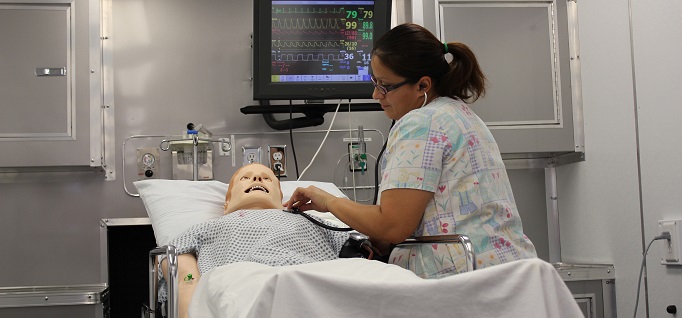Success from the ground up
By Julia Garcia
March 14, 2017
Successful grassroots marketing involves planning, staff and faculty buy-in and community engagement.
When I was asked to write on the Coastal Bend College’s (CBC’s) approach to outreach, I wondered where to begin. I say this to make a point. The first step to take when planning an outreach campaign is to have a plan. Effective outreach campaigns don’t happen by accident. Conversely, when you have an effective outreach campaign, your college’s events are easier to publicize without having to dedicate dollars to it.
Meetings and planning are very critical to managing your college’s outreach program. Grassroots campaigns are the most cost effective way to go. They also are most effective at getting your college into the community. This excerpt from Chron.com explains grassroots for those of you not familiar with the term:
“Grassroots marketing, sometimes known as guerilla marketing, starts from the ground up. Instead of launching a message you hope will appeal to many people, you target your efforts to a small group and hope the group will spread your message to a much larger audience. Grassroots marketing often uses unconventional or nontraditional methods.”
The key to a successful grassroots campaign is to utilize the experts of your college. Who are these experts? Your college’s staff and faculty. In the beginning, there may be a bit of resistance among the staff and faculty to give up some of their personal time to do outreach, especially since most grassroots outreach is done on weekends and evenings. The key here is to make sure all understand that the more the word is spread about your college, the more interest there is, and the more your college’s enrollment will increase. This process doesn’t happen overnight, but with positive re-enforcement, it is attainable.
At CBC, we utilize grassroots marketing by taking the college to the community. Thanks to several grants, we have three mobile units that use state-of-the-art-technology to do several things—including engage with the public. These mobile units are very visible and branded with CBC’s logo and eye-catching images.
Mobile Welding Unit: This unit is equipped with four welding units and one “virtual” welding unit. This unit, the Vertex, simulates the actual process of welding without using any supplies. The Vertex is connected to a trailer that records and tracks the student’s progress.
Mobile Nursing Simulation Unit: This trailer has state-of-the-art medical equipment that attracts and amazes visitors. This unit is equipped with mannequins that have the ability to speak and moan in pain that students use to learn how to handle many situations they will encounter not only in the classroom but also in real life.
The Cougar Zone Unit: This is CBC’s mobile Go Center, which is equipped with computers connected with Wi-Fi that allows potential CBC students to see what programs of studies are available to them and allows them to apply to CBC and fill out the FAFSA paperwork.
With strategic planning, staff and faculty buy-in, and community outreach, CBC’s grassroots campaigns have found success.
Garcia and her CBC colleagues will speak about faculty as college leaders on April 23 at the AACC Annual Convention in New Orleans.


